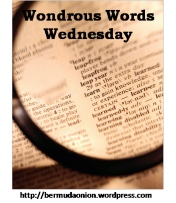I am a worrier. I often remind my husband, when he tells me not to worry, that I come from a long line of worriers, as if this tradition of my mother and her mother always worrying validates my tendency to fret. As if my habit of jumping to the worst case scenario in my head is perfectly normal, acceptable behavior.
Well, it’s not.
The Problem
Here’s the problem with worrying: it doesn’t DO anything. Wait, that’s not true. It makes my stomach hurt and steals hours of sleep when I need them the most. It encourages me to snap but not to solve the problem I’m churning over. It also usually annoys the people I’m worried about. So a more accurate statement is:
Worrying doesn’t accomplish anything productive.
My husband, ever calm, ever rational, has told me this for years, and I’ve always gotten mad when he said it. But finally, after decades of entertaining this bad habit, I’m tired of suffering its consequences. I’m tired in general, and I don’t have the precious energy to waste on fretting.
I’m ready to confront my worrying.
First, I’m trying to find the root of the problem. I think it has something to do with my need for predictability and control. I have a spreadsheet for our sports schedule and a specific method for loading groceries onto the checkout belt (produce first, then cold stuff, followed by boxes and cans, then the items I don’t want crushed). Worrying is my futile attempt to control my world. Finally, at age 46, I’m understanding that I actually have very little control over the world, and if I accept that, I’ll be a happier gal.
Second, I’m going to break the habit with a few new tools.
The Solution
Lent has started, and each year during this season I practice three disciplines to bring me closer to God: prayer, fasting, and acts of service. I always fast from sweets and Coke during Lent to “detox” (don’t underestimate my addiction to Coke; this truly is a sacrifice for me.) This year I’m also fasting from worry, but I’m going to need a system to help me.

I will create a “worry journal” in which I will write down the things that trouble me. I will find scripture or quotes to put next to my concerns, so that when my head starts to spin with worrisome thoughts, I will use the scripture/quotes as prayers and mantras to counteract the fretting. I also hope the physical act of writing down my fears will contain them in the pages of my journal and keep them from creating havoc in my head.

To strengthen my ability to control my thoughts, I’ve started practicing meditation with the help of an app called Insight. (Thank you, daughter.) It has a timer as well as a library of guided meditations searchable by theme and length. My friend Sarah B. Rawz has great tips for meditation on her blog that I’m using too. I’ve only done this for a few days, and for ten minutes or less, but I’m hoping to make it a habit. A productive one to replace the pointless one.
I told my family about my plan, and my people are understandably dubious. My son asked if I would burn the journal at the end of Lent, but I think not. Sometimes, it’s instructive to look back on what you’ve worried about once you know how everything plays out. And, I think I’m going to need this worry journal for longer than six weeks. As my dear friend Kristen pointed out, “This is a tough year for worrying.” My oldest son will leave for college this fall. I’ll have one son starting high school and another starting middle school. My daughter will get her driver’s license this summer.
Lots of worry fodder there. I’ll be ready to not worry.
Is worrying a problem for you? How do you handle it? Do you have any Lenten practices to share?
Thanks for stopping by!











 Premise
Premise We don’t have a Target or state of the art school buildings, but we do have something else: people matter here. I’ve seen many examples of this: when friends take care of my children during family emergencies, when people in the community clip and share photos of my kids from the local paper, when adults who aren’t related to my kids attend their sporting and academic events and send them notes of encouragement. Once, when my 15 year old daughter complained about how horrid our town is, I listed the names of 10 people outside of our family who care about her and pray for her.
We don’t have a Target or state of the art school buildings, but we do have something else: people matter here. I’ve seen many examples of this: when friends take care of my children during family emergencies, when people in the community clip and share photos of my kids from the local paper, when adults who aren’t related to my kids attend their sporting and academic events and send them notes of encouragement. Once, when my 15 year old daughter complained about how horrid our town is, I listed the names of 10 people outside of our family who care about her and pray for her.

